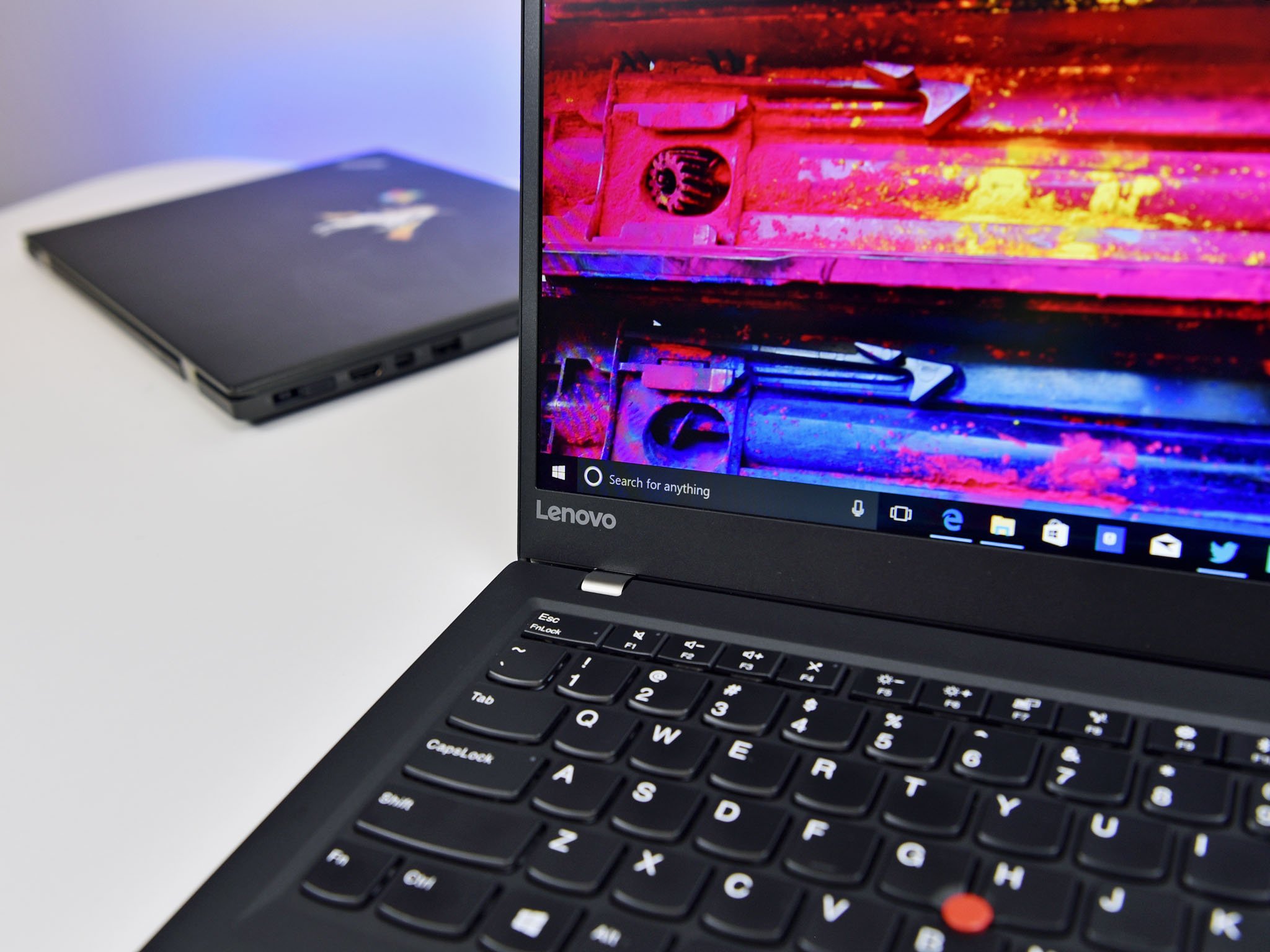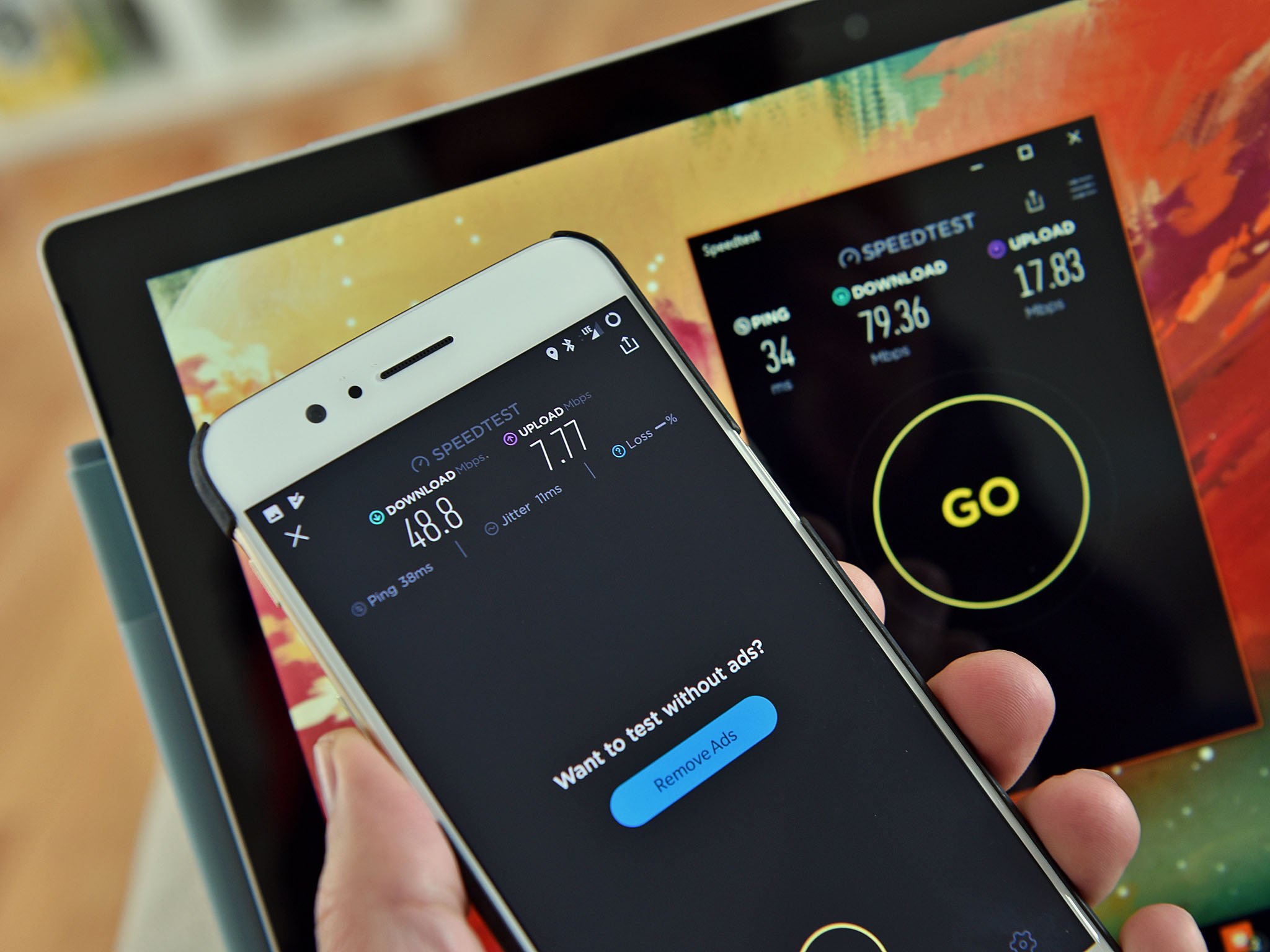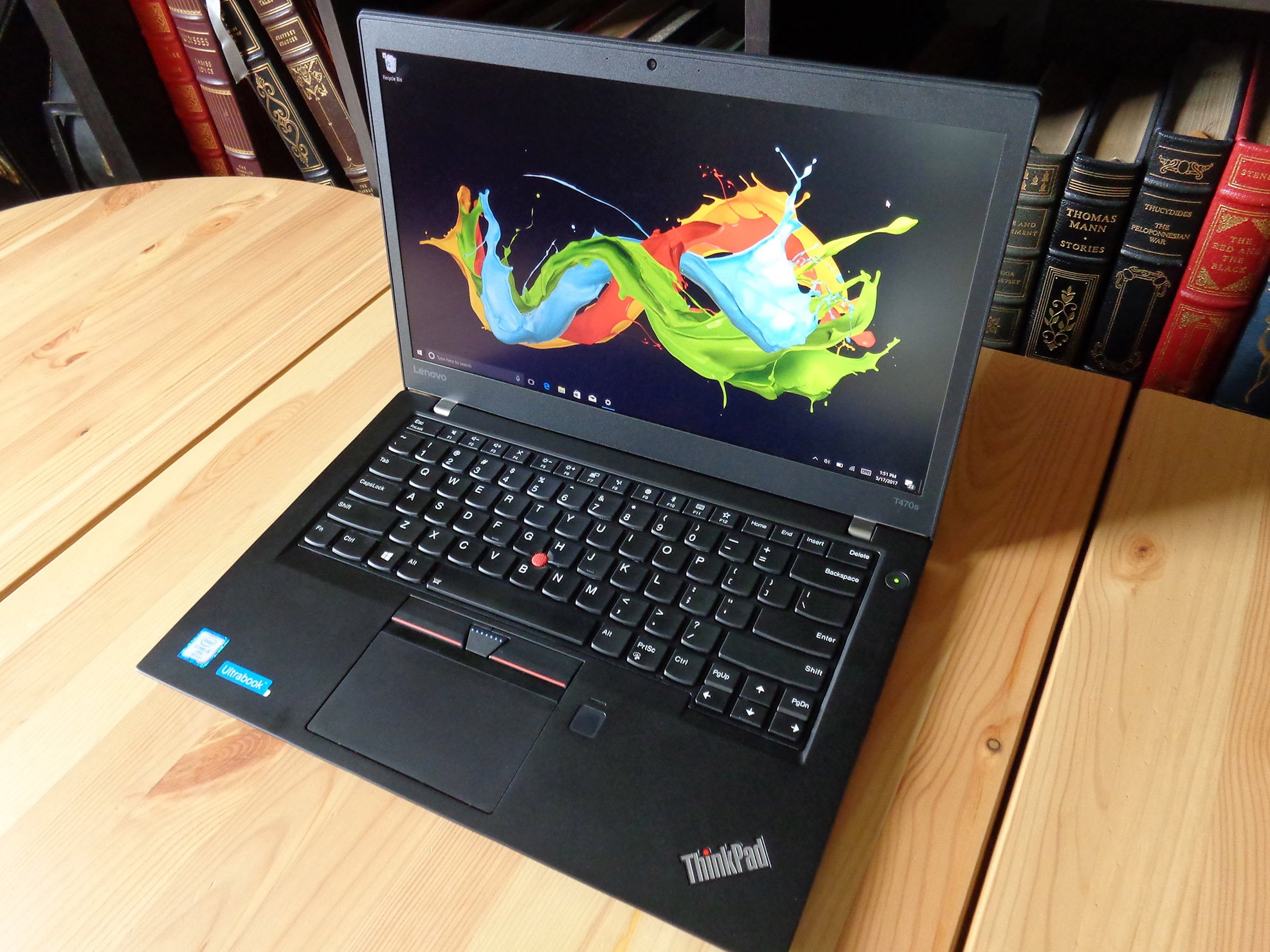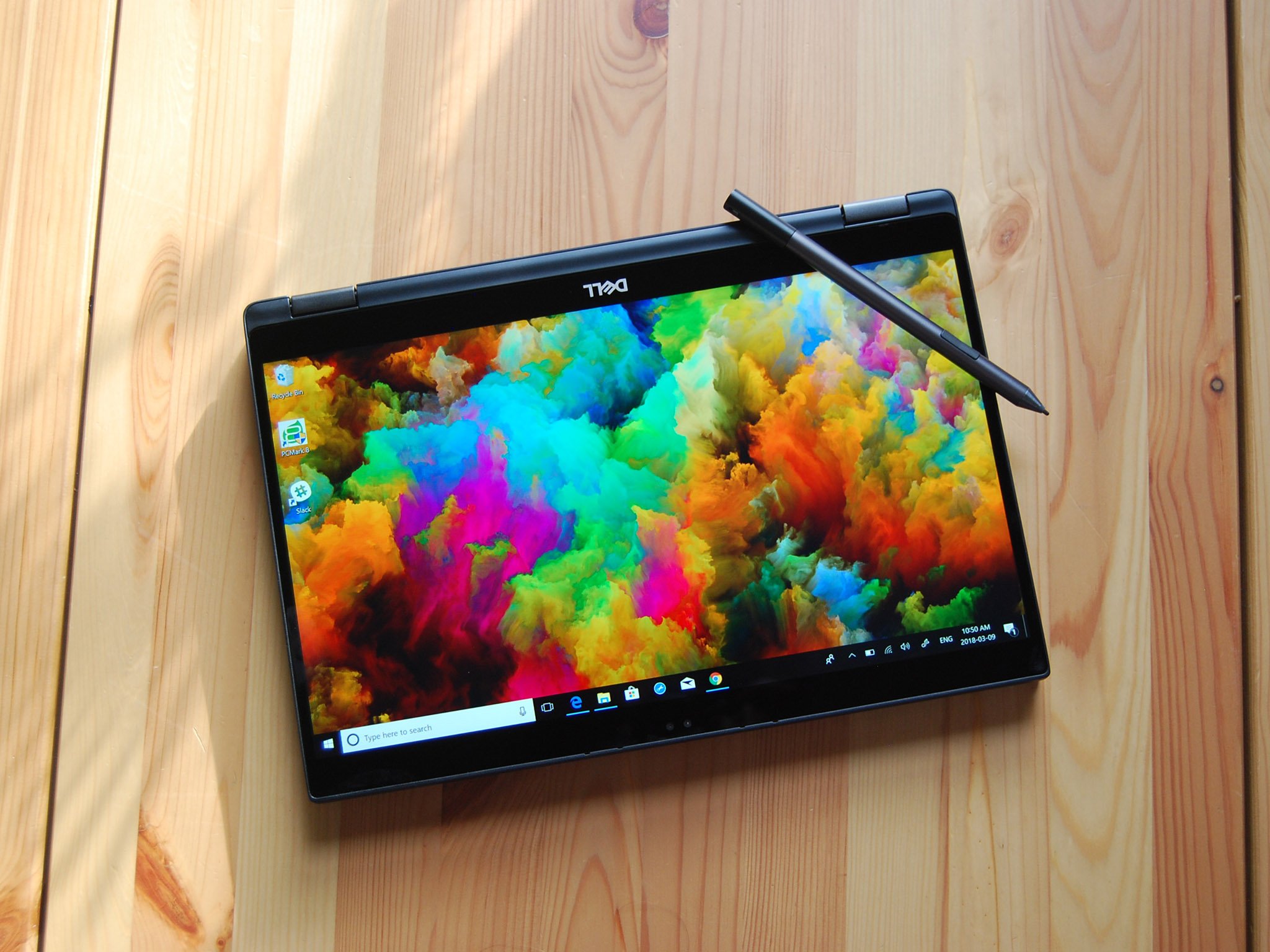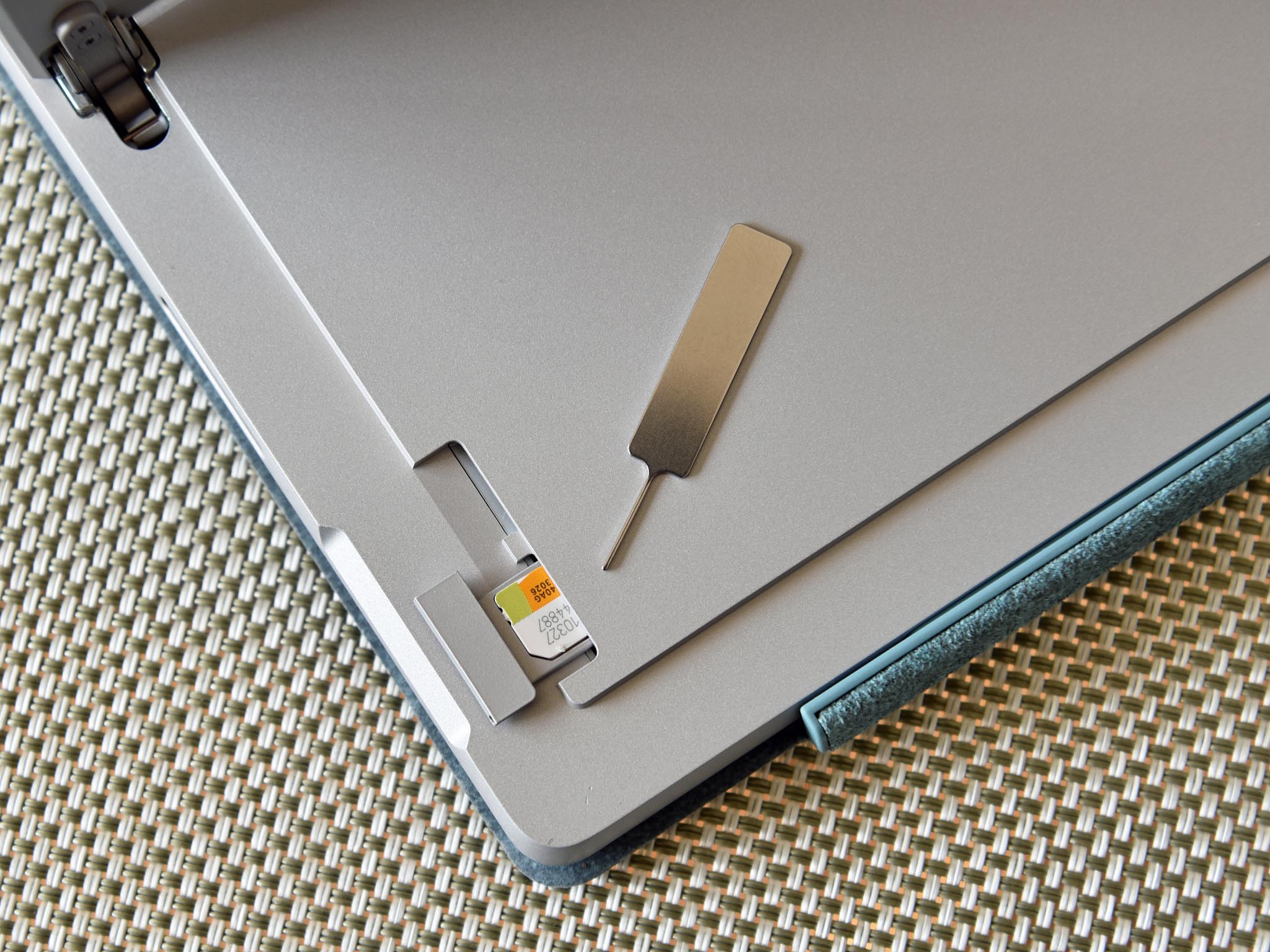
All the latest news, reviews, and guides for Windows and Xbox diehards.
You are now subscribed
Your newsletter sign-up was successful
With the release of the Surface Pro with LTE and with the upcoming "Always Connected PCs" from various manufacturers, many more people are waking up to the idea of laptops using mobile data as a way to connect to the internet. Anyone with a phone knows how convenient it is to always have a connection to all that information riding around in their pocket, but what about when used with one of the best Windows laptops? Do you really need to have your laptop connected at all times rather than relying on Wi-Fi or Ethernet connections? Let's take a look at why you might and why you might not want to jump on the LTE wagon.
You can stay connected (almost) anywhere
This is the big reason. With a laptop that has an embedded SIM (eSIM) or SIM reader, you can sit down anywhere with mobile data coverage and bash out an email, make changes to a website, or pull information to complete a document. As we move more into the cloud, this becomes more important. Sure, you can do all these things on your phone, but it's nowhere near as convenient as with a full screen and keyboard.
For anyone who feels like they can't leave the office lest they get hours behind on work, a laptop that's not half useless without Wi-Fi will make an enormous difference. You'll no longer have to worry about where the next hotspot is located, and you won't have to worry about any shady public connections. As the workforce moves more online (and we become more dependent on the internet), PCs that can retain a connection at all times should only become more popular.
LTE laptops provide a more secure connection in public
Public Wi-Fi hotspots — those you find in cafes and hotels — are generally shady at best, and you never know who might be sitting nearby waiting to hijack the connection for their own nefarious needs. A subscription to a worthwhile VPN does indeed get rid of a lot of the problems with public Wi-Fi, but if you're in the market for a new laptop anyway, one with LTE will let you bypass anything that seems untrustworthy.
You also won't have to put up with bandwidth being split ten different ways as everyone in the vicinity tries to hit a deadline (or catch up on the latest gossip).
Related: 6 good reasons why you really should use a VPN
LTE laptops provide a faster connection than tethering
Though tethering your laptop to your phone is a solution when you're on the go, connecting straight to LTE is certainly more elegant. Your laptop will generally see higher transfer speeds, and you won't have to worry about your phone's battery draining faster than usual.
All the latest news, reviews, and guides for Windows and Xbox diehards.
Considering tethering is usually a feature that costs more on top of your standard mobile plan (if it's available at all), it's hard to see it going much farther than where it stands right now. As Executive Editor Daniel Rubino said in his article on how LTE and eSIM are changing the game, "wireless 4G tethering is a kludge, not a solution.
Why (and how) Windows 10 PCs with LTE and eSIM will change the game
Battery life in LTE laptops shouldn't be affected
Whereas in the past some laptops with LTE functionality took a hit in the battery department, current tech has narrowed the gap down to where it's almost unnoticeable. Take the Surface Pro with LTE as an example. Compared to its non-LTE counterparts, using mobile data doesn't suck up much more battery than using standard Wi-Fi.
This is partially due to Windows 10 data-saving and battery management tools, but nevertheless, you should no longer have to choose between great battery life and an LTE connection.
Surface Pro with LTE review: Impressive but not for everyone
LTE laptops are more expensive
As more LTE laptops continue to hit the market, prices will no doubt begin to level out, but for now you're going to be paying more for a device with mobile broadband capabilities. Again using the Surface Pro as an example, a non-LTE configuration with Core i5 processor (CPU), 256GB solid-state drive (SSD), and 8GB of RAM costs about $1,300.
For the same configuration with built-in LTE, you're looking at paying about $150 more. This isn't an enormous difference, but if you think you can get by with only Wi-Fi, why not save some money?
Wrapping up
Laptops with an LTE feature are only going to get more common, and it's easy to imagine a time in the near future where every new device comes by default with an eSIM inside. As buying options become simpler, you'll be able to buy a few gigabytes of data for immediate use, further simplifying the entire setup.
As for right now, anyone who's constantly on the go can undoubtedly benefit from an LTE laptop, though if you think you can continue to get by with Wi-Fi or Ethernet, you'll be able to save some sweet, sweet money.
More resources
Have a look at these other articles for more information about LTE laptops.

Cale Hunt brings to Windows Central more than nine years of experience writing about laptops, PCs, accessories, games, and beyond. If it runs Windows or in some way complements the hardware, there’s a good chance he knows about it, has written about it, or is already busy testing it.
